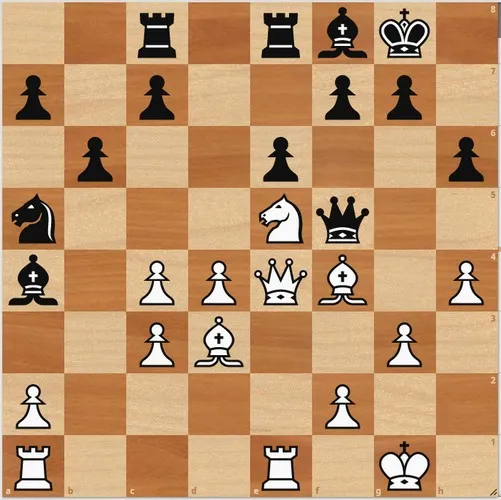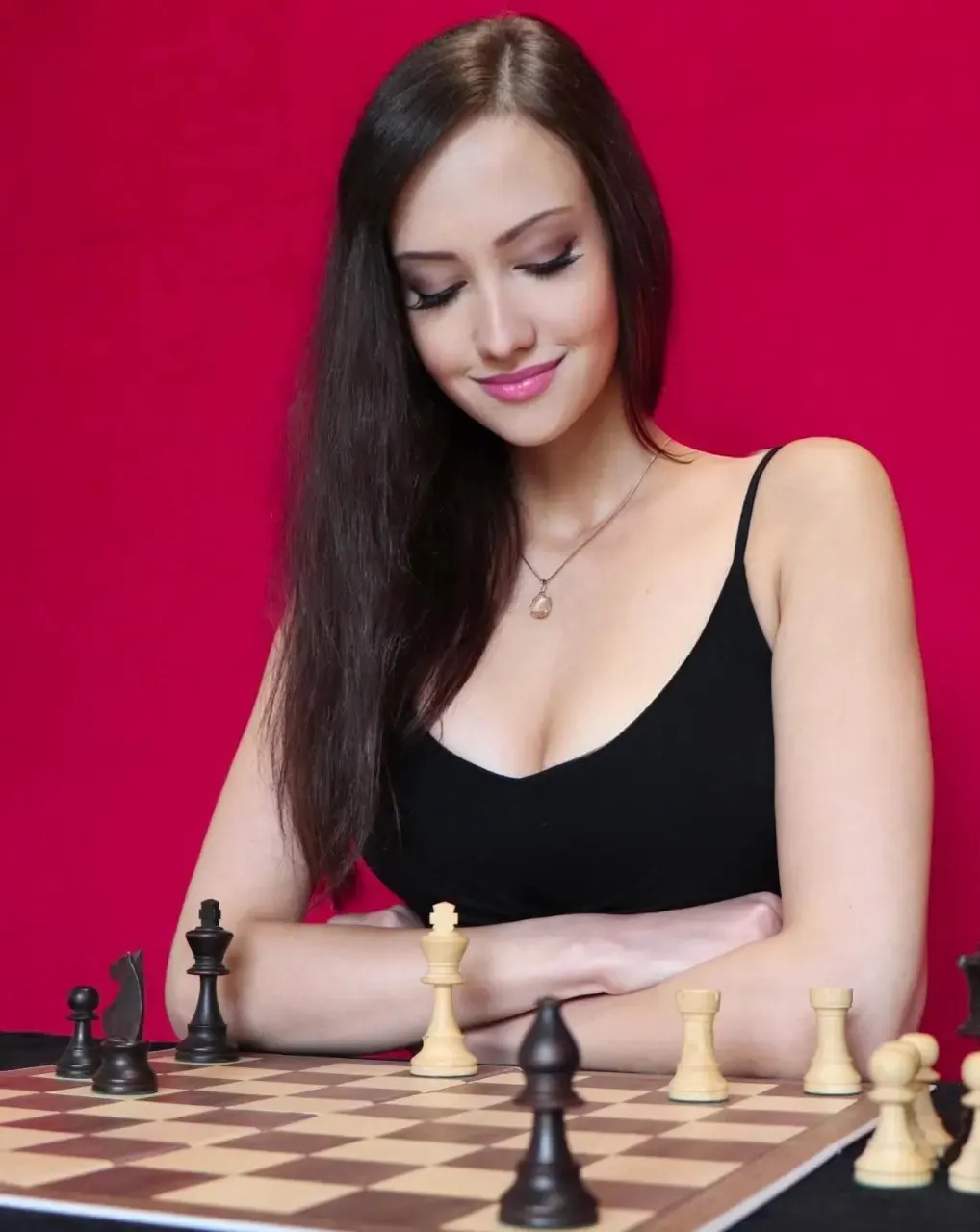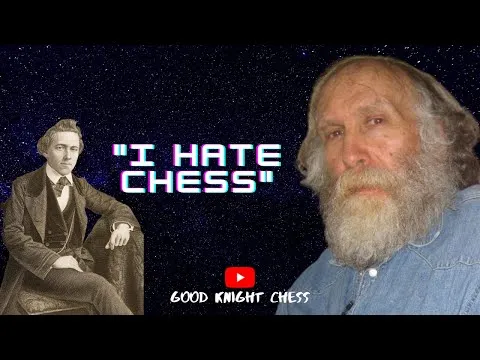
“Excelling at chess has long been considered a symbol of more general intelligence. That is an incorrect assumption in my view, as pleasant as it might be.”
– Garry Kasparov
I can’t remember what age exactly I have learned the rules of chess. I remember my late father taught me to move the pieces. The first games with the kids from the block were fun because we were mostly equal, and our ‘tournaments’ usually always had a different winner. And then, one day… One day, one among us started beating everybody else without exception!
Hey, how did you do that?
The secret was simple – he started reading chess books!
Then we all started reading chess books. Some of us were doing it in secret, and some of us brought the books they could find in the libraries. And even then it has become clear – chess is actually not ‘a game of intelligence’, but a game of memory. If you want to climb up the ladder to the World chess top, you have to memorize a great number of variations, the openings, the tactics in middlegame, the endings… and then keep some mental strength and freshness to execute the advantage of a better memory. Best explained by the old romantic school master Rudolf Spielmann:
“Play the opening like a book, the middle game like a magician, and the endgame like a machine”
So, it’s a learning process, and as in any learning, in chess you will be all the better if you devote more time to it. Why do I consider this important? Because there are people who are actually afraid to play chess fearing they might turn out stupid. That’s not true. The truth is that chess, by all means, is not the measure of intelligence. As a creative game it can be useful, it can help you understand and improve your own character, improve your memory techniques, and teach you some strategic thinking so necessary in real life.
But be careful – it also can destroy your life if you take it too seriously and devote too much time to it. See the example of the greatest chess champion of all times – Robert James Fischer – and listen what he was saying about chess in 2012:
He is the man who devoted all his life to chess, and then bitterly regret it in the old days. You really ought to understand chess not as a profession, but as what it is – a game made to bring a bit of that miraculous and beautiful childish joy in your life. Here is my advice to all who dread getting involved in chess tournaments in fear of looking stupid:
Enjoy the game, enjoy its beauty, enjoy your wins as you should enjoy new things learned from your losess.
In the learning process, the most important thing imaginable is – to have a good teacher of the basics. Especially if he is an 2300 ELO and can crush you in 15 moves online. If you do not have a good teacher, a personal coach or a wonderful book like, for example My System by Aron Nimzowitsch, you can easily adopt wrong notions which will be difficult to remove for further advancements. Sometimes it is harder to forget bad habits acquired, than it is to learn completely new concepts…

Here is one example from the book ‘Creative Chess’ by Amatzia Avni. In his coaching work he defined a stages in chess learning:
| Stage one | Stage two | Stage three |
|---|---|---|
| Everything may be right; everything is possible. There are no principles, no guiding laws. | Everything that falls inside the frames is possible; the rest is wrong. | Everything that falls inside the frames is possible; the boundaries between the frames and their surroundings are not rigid. So what is outside the frames can also be possible. |
Let’s suppose that you, as a beginner, have solved the problem of your bad chess habits from the first stage, and learned chess principles in the second. Now comes the hardest part in the third stage: learning to break principles you’ve learned in the second stage! Avni gives a following example from the Introduction to the expanded edition of his book:

White wins with a completely unorthodox move. Can you spot it? Here, I’ll give you a minute to search for the solution:
Thinking Intermezzo, 0 seconds…

Thinking Intermezzo, 20 seconds…

Thinking Intermezzo, 40 seconds…

OK, Enough Thinking!
Congratulations for those who were able to find a solution, you are not Human but a fish. And not an ordinary fish, but Stockfish! Yes, the correct answer is ♕h1! and the black Queen is trapped. At this example, Avni noticed that the strongest participants in the lectures solved this puzzle within seconds, almost like any normal Stockfish would, while younger ones (younger in chess, that is still in the stage two) stared at the demonstration board for some minutes without success. Why? Well, because of the principles learned in the second stage. Principle says that corner squares are the worst location for your Queen, so they didn’t consider this move, albeit in this situation we have to make an exception to the principles to win the game.
You see, it is not enough to learn principles and their implementation, but you have to be aware of exceptions and to MEMORIZE that rule along with a bunch of exceptional situations that can appear in a practical games. Memory full of usable chess data separate real master from the amateur.
I know what some of you will say:
Hey, @lighteye, why do we have to read books and pay coaches? We have computer memory now!
Well, computer may be an indispensable tool in an advanced stage of your learning and preparing for competitions, since it allows easy search for the games and quick analysis of the critical positions. But computer can’t help you when you are one-on-one with your opponent. You have to have your OWN MEMORY for playing chess. And computer can show you a move in a single situation, but it cannot explain you the spirit of the game like a teacher. Cannot make a winning plan for you, or explain how to make it on the basis of the pawn structure. Only teacher (or coach) can do it. Or, best of all, you can simply rely on your natural talent and play for pure pleasure. As doctors would say:
One game a day keeps Alzheimer away!
FTX Crypto Cup, Prelims Day 1
For the end of this text we have links and standings after the first day of FTX Crypto Cup the strongest chess tournament ever held. You can chose your commentators:
Peter Leko & Tania Sachdev
David Howell & Jovanka Houska
Standings after the Prelims Day 1
| Std. | Player | Points | ELO |
|---|---|---|---|
| 1. | Anish Giri | 4/5 | 2780 |
| 2. | Hikaru Nakamura | 3½/5 | 2736 |
| 3. | Maxime Vachier-Lagrave | 3½/5 | 2760 |
| 4. | Wesley So | 3½/5 | 2770 |
| 5. | Teimour Radjabov | 3/5 | 2765 |
| 6. | Alireza Firouzja | 3/5 | 2759 |
| 7. | Ding Liren | 3/5 | 2799 |
| 8. | Ian Nepomniachtchi | 2½/5 | 2792 |
| 9. | Magnus Carlsen | 2½/5 | 2847 |
| 10. | Fabiano Caruana | 2½/5 | 2820 |
| 11. | Peter Svidler | 2/5 | 2714 |
| 12. | Daniil Dubov | 2/5 | 2710 |
| 13. | Levon Aronian | 2/5 | 2781 |
| 14. | Shakhriyar Mamedyarov | 1½/5 | 2770 |
| 15. | Alexander Grischuk | 1/5 | 2776 |
| 16. | Alan Pichot | ½/5 | 2630 |
Let’s see who has the best memory!
* * *
Related texts / Повезани текстови:
BITCOIN: FTX Crypto Cup – The Strongest Chess Tournament in the World! [eng/срп] БИТКОИН: FTX Крипто Куп – Најјачи шаховски турнир на свету!
Dragon Blunder! [eng/срп] Змајски превид!
Sicilian Wall Headbanger! [eng/срп] Главом кроз сицилијански зид!
It’s Over! (FIDE Candidates 2020-21 - Round 13)
Deconstructing Fabiano (FIDE Candidates 2020-21 - Round 12)
Anishiative! (FIDE Candidates 2020-21 - Rounds 11–12)
Bringing Down the Najdorf! (FIDE Candidates 2020-21 - Rounds 8–10)
FIDE Candidates tournament 2020… in 2021!
Gambit of Othello, the Moore of Venice!
Chess Set design: Lardy Set (Part IV) [eng/срп] Дизајн шаховских фигура: Лардијева гарнитура (део четврти)
Chess Set design: Staunton standard variations (Part III) [eng/срп] Дизајн шаховских фигура: Варијације Стаунтон стандарда (део трећи)
Chess Set design: Staunton Standard (Part II) [eng/срп] Дизајн шаховских фигура: Стаунтон стандард (део други)
Chess Set design: Medieval Age (Part I) [eng/срп] Дизајн шаховских фигура: Средњи век (део први)



Universal Basic Income

Universal Basic Income

Google detox starts here!

Google detox starts here!
 PocketNet
PocketNet
 PocketNet
PocketNet
Check out ABRA and easily invest in 28 cryptocurrencies or BIT10, an index of the top cryptos. Use this link to sign up and get $25 in free bitcoin after your first Bank/Amex deposit, or 1.5% cash back when you exchange cryptos
 : 1GZQG69sEKiMXKgGw9TcGcUCBoC4sC1ZYp
: 1GZQG69sEKiMXKgGw9TcGcUCBoC4sC1ZYp

